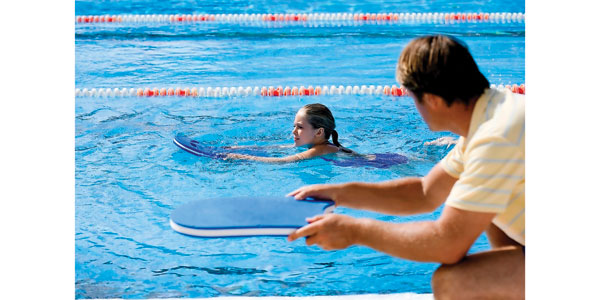
403
Sorry!!
Error! We're sorry, but the page you were looking for doesn't exist.
Qatar- Parents urged to be active to prevent summer drowning
(MENAFN- The Peninsula) With the onset of summer, the Hamad Medical Corporation (HMC) has urged families to pay attention to their children's safety around swimming pools, and the seaside.
In Qatar, drowning is a leading cause of death and serious disability in children, and the number of child deaths from drowning is rising annually, according to Kulluna Health and Safety Campaign chairman Dr Khalid Abdulnoor Saifeldeen. Kulluna is a brainchild of HMC's Hamad International Training Center (HITC).
Ninety percent of cases of drowning involve children aged 10 or under, with 70 percent younger than four years old.
"We don't have open lakes and rivers in Qatar, so drowning incidents occur mainly at home, in private swimming pools and bathtubs. There are also some incidents of drowning in the sea," said Dr. Saifeldeen. "Almost all the drowning incidents in swimming pools in Qatar happen when the parents are not around, and either one child or a group of children are left alone."
Kulluna has proposed the following measures to keep children safe in and around water: Constant supervision, preventing unintentional access to sources of water, teaching children how to swim, setting clear rules for family members when near water and enforcing them, wearing lifejackets or a personal flotation aid and learning to perform CPR (cardiopulmonary resuscitation).
Constant supervision is the key to keeping a child safe around water, added Dr. Saifeldeen.
"You will not be aware that a child is in trouble unless you are watching him or her. Don't leave children on their own around or in the water, even if they can swim, and even if they're wearing lifejackets."
He explained that "supervision means we can see and hear them, and we can reach them very quickly, because drowning can take seconds to happen and it often happens in silence."
Unintentional access to sources of water can be prevented by installing a secure gate or other barrier, which must be checked on a regular basis to ensure the barrier is working properly and serving its purpose as a child grows in height and dexterity, he suggested.
"Always close the doors to bathrooms and drain paddling pools, baths and buckets immediately after use. About 70-80 percent of drowning cases happen when the child is not supposed to be in the water," Dr Saifeldeen said, stressing that barriers alone are not enough and direct supervision is still essential.
He mentioned that there are a number of schools or clubs in Qatar where children can learn how to swim, and parents themselves can teach their kids, with direct supervision. He explained that small children and those who are inexperienced or weak swimmers should wear lifejackets or a personal flotation aid when in or near water, even with parents around, while noting that "these devices are not a substitute for adult supervision".
Dr Saifeldeen pointed out that learning CPR could be very useful as the first few minutes following an accident in water are critical. "Keep your training up to date and keep CPR instructions with your first aid kit, and by the pool, if you have one. Kulluna offers free CPR training, and anyone interested can send a message through our website www.kulluna.qa."
Kulluna has provided education on CPR and children's safety in engaging and interactive ways in more than 70 schools in Qatar. "We hope we don't reach the point where we need CPR. Unfortunately, even if we manage to successfully resuscitate a child, children can end up with severe disability," he said.

Legal Disclaimer:
MENAFN provides the
information “as is” without warranty of any kind. We do not accept
any responsibility or liability for the accuracy, content, images,
videos, licenses, completeness, legality, or reliability of the information
contained in this article. If you have any complaints or copyright
issues related to this article, kindly contact the provider above.

















Comments
No comment